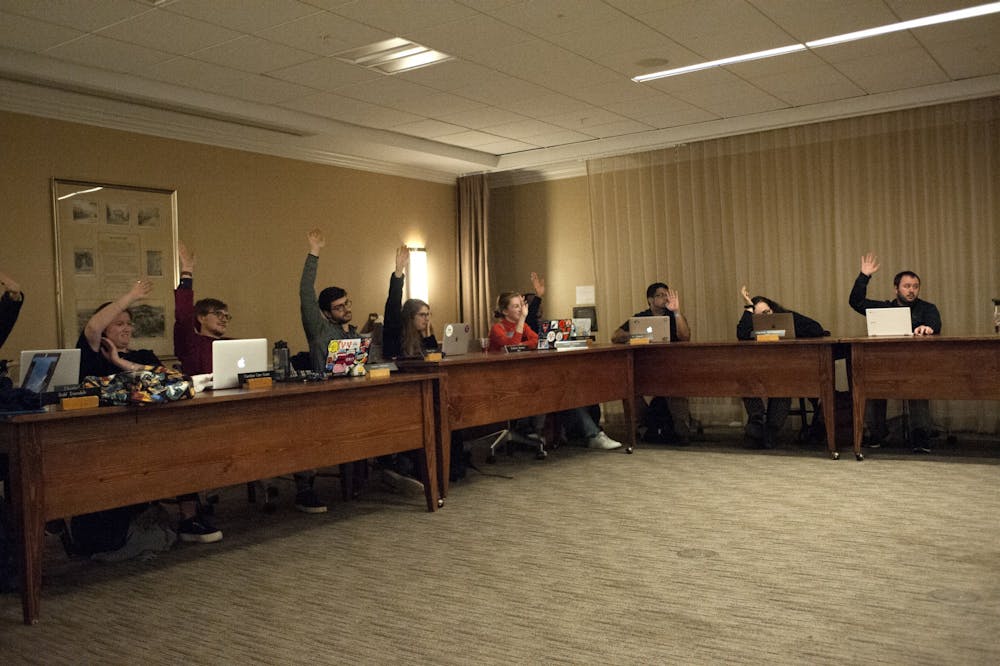During its meeting Sunday, the Honor Committee prepared to finalize its proposed internal disclosure policy, which would require that members of Honor inform the committee of any disciplinary proceedings they are involved in. The Committee took no official action to change its code of ethics and implement the disclosure policy during this meeting. The two amendments to its bylaws that the Committee did approve represent some of the final steps before the Committee officially weighs in on final consideration of the policy.
The disclosure policy itself would be implemented through an amendment to the organization’s code of ethics and was last discussed at Honor’s Oct. 22 meeting, where committee members expressed hope to finalize their discussion of the initiative during this Sunday’s meeting.
The first amendment to the bylaws passed Sunday grants responsibility to amending the code of ethics to the entire Honor Committee, rather than just its executives.
Some Committee members felt that the code’s wide reach meant the full Committee should take responsibility for the document.
“The code of ethics does bind every member of the Honor System, from support officers to committee members,” said Stephen Paul, an Honor representative and graduate student in the Law School. “It might make sense for the full Committee to take responsibility for it.”
Other Committee members expressed concerns that a full-committee solution might be unnecessarily cumbersome.
“You don’t have a smaller, faster mechanism,” said Mary Beth Barksdale, a fourth-year College student and vice chair of Education on Honor.
Barksdale warned that requiring a discussion with the entire Committee — rather than executive members alone — might interrupt more important proceedings.
“Forcing them to [do so] might bog them down,” she said.
Despite these concerns, members voted unanimously to amend the bylaws, granting the entire Committee responsibility for changing the code of ethics.
A second amendment concerned the standards panel, which addresses violations of the Committee’s code of ethics and thus plays a key role in the proposed disclosure policy. The change proposed giving the panel additional power to amend its own policies and procedures by a majority vote of its five members.
“It makes sense for the panel to be able to conduct its business as it sees fit,” Paul said.
The amendment would also affirm the right of students accused of Honor offenses to choose a counsel from the student body, even if the standards panel has previously suspended that counsel from service on the Honor Committee.
According to the Honor Committee’s constitution, accused students have the right “to be assisted by counsel chosen by the accused from the student body.” The amendment clarifies that this right extends even to selection of a counsel who has been suspended from serving on the Committee or as a support officer.
“The constitutional right to select that support officer as an individual student under the Honor Constitution trumps the language of the code of ethics that suspends them from the support officer pool,” Paul said.
The second amendment also passed with a unanimous vote.
Lillie Lyon, a fourth-year College Student and chair of Honor, believes that the Committee will finalize the details of the disclosure policy during next week’s Honor meeting.
Lyon noted that the changes to the bylaws that officially authorize the Committee to take responsibility for the code of ethics went into effect on Monday.







